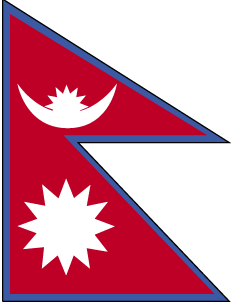Indonesia Singapore United States India Iraq Philippines China Myanmar United Kingdom Malaysia Germany South Africa Pakistan Turkey Bangladesh Vietnam Japan South Korea Australia Hong Kong Canada Iran France Nigeria Saudi Arabia Taiwan Netherlands Poland Brazil Thailand Sri Lanka Egypt Russia Peru Italy United Arab Emirates Kenya Greece Spain Algeria Morocco Ireland New Zealand Mexico Ghana Finland Romania Portugal Colombia Sweden Austria Jordan Nepal Kazakhstan Israel Switzerland Tunisia Ethiopia Ecuador Tanzania Ukraine Belgium Cameroon Uganda Hungary Czech Republic Oman Bulgaria Zimbabwe Cambodia Yemen Qatar Norway Denmark Lithuania Bahrain Serbia Mauritius Libya Argentina Slovakia Lebanon Timor-Leste Chile Croatia Palestinian Territory Syria Latvia Costa Rica Kuwait Estonia Cyprus Uzbekistan Botswana Afghanistan Jamaica Zambia Senegal Namibia Somalia Azerbaijan Malawi Lesotho Bolivia Bosnia and Herzegovina Malta Luxembourg Trinidad and Tobago Brunei Darussalam Macao Slovenia Cote D'Ivoire Panama Armenia Seychelles Puerto Rico Cuba Iceland Bhutan Guyana Albania Rwanda Maldives Sudan Kosovo Venezuela Mozambique Burkina Faso Eswatini Saint Lucia North Macedonia Mongolia Benin Laos Montenegro South Sudan Belarus Barbados Paraguay Dominican Republic Honduras Papua New Guinea Madagascar Suriname Moldova Georgia Kyrgyzstan Guatemala Belize El Salvador Liberia Saint Vincent and the Grenadines Isle of Man Angola Uruguay Democratic Republic of the Congo Cayman Islands Chad Niger Togo Mauritania Grenada Antigua and Barbuda U.S. Virgin Islands Fiji Vanuatu Equatorial Guinea Gambia Saint Kitts and Nevis Northern Mariana Islands Mali Turkmenistan Cook Islands Djibouti Cabo Verde Solomon Islands Bahamas Andorra Sierra Leone Eritrea Curacao Greenland
Nepal Indonesia
Singapore
United States
India
Iraq
Philippines
China
Myanmar
United Kingdom
Malaysia
Germany
South Africa
Pakistan
Turkey
Bangladesh
Vietnam
Japan
South Korea
Australia
Hong Kong
Canada
Iran
France
Nigeria
Saudi Arabia
Taiwan
Netherlands
Poland
Brazil
Thailand
Sri Lanka
Egypt
Russia
Peru
Italy
United Arab Emirates
Kenya
Greece
Spain
Algeria
Morocco
Ireland
New Zealand
Mexico
Ghana
Finland
Romania
Portugal
Colombia
Sweden
Austria
Jordan
Nepal
Kazakhstan
Israel
Switzerland
Tunisia
Ethiopia
Ecuador
Tanzania
Ukraine
Belgium
Cameroon
Uganda
Hungary
Czech Republic
Oman
Bulgaria
Zimbabwe
Cambodia
Yemen
Qatar
Norway
Denmark
Lithuania
Bahrain
Serbia
Mauritius
Libya
Argentina
Slovakia
Lebanon
Timor-Leste
Chile
Croatia
Palestinian Territory
Syria
Latvia
Costa Rica
Kuwait
Estonia
Cyprus
Uzbekistan
Botswana
Afghanistan
Jamaica
Zambia
Senegal
Namibia
Somalia
Azerbaijan
Malawi
Lesotho
Bolivia
Bosnia and Herzegovina
Malta
Luxembourg
Trinidad and Tobago
Brunei Darussalam
Macao
Slovenia
Cote D'Ivoire
Panama
Armenia
Seychelles
Puerto Rico
Cuba
Iceland
Bhutan
Guyana
Albania
Rwanda
Maldives
Sudan
Kosovo
Venezuela
Mozambique
Burkina Faso
Eswatini
Saint Lucia
North Macedonia
Mongolia
Benin
Laos
Montenegro
South Sudan
Belarus
Barbados
Paraguay
Dominican Republic
Honduras
Papua New Guinea
Madagascar
Suriname
Moldova
Georgia
Kyrgyzstan
Guatemala
Belize
El Salvador
Liberia
Saint Vincent and the Grenadines
Isle of Man
Angola
Uruguay
Democratic Republic of the Congo
Cayman Islands
Chad
Niger
Togo
Mauritania
Grenada
Antigua and Barbuda
U.S. Virgin Islands
Fiji
Vanuatu
Equatorial Guinea
Gambia
Saint Kitts and Nevis
Northern Mariana Islands
Mali
Turkmenistan
Cook Islands
Djibouti
Cabo Verde
Solomon Islands
Bahamas
Andorra
Sierra Leone
Eritrea
Curacao
Greenland
Nepal Flag Meaning & Details 150 VISITORS FROM HERE! Nepal Flag Flag Information crimson red with a blue border around the unique shape of two overlapping right triangles the smaller, upper triangle bears a white stylized moon and the larger, lower triangle displays a white 12-pointed sun the color red represents the rhododendron (Nepal's national flower) and is a sign of victory and bravery, the blue border signifies peace and harmony the two right triangles are a combination of two single pennons (pennants) that originally symbolized the Himalaya Mountains while their charges represented the families of the king (upper) and the prime minister, but today they are understood to denote Hinduism and Buddhism, the country's two main religions the moon represents the serenity of the Nepalese people and the shade and cool weather in the Himalayas, while the sun depicts the heat and higher temperatures of the lower parts of Nepal the moon and the sun are also said to express the hope that the nation will endure as long as these heavenly bodies note: Nepal is the only country in the world whose flag is not rectangular or square
Learn more about Nepal » CIA - The World Factbook
 Nepal
Nepal Previous Country | Next Country
Previous Country | Next Country  » Back to Flag Counter Overview
» Back to Flag Counter Overview
 Nepal
Nepal Previous Country | Next Country
Previous Country | Next Country  » Back to Flag Counter Overview
» Back to Flag Counter Overview